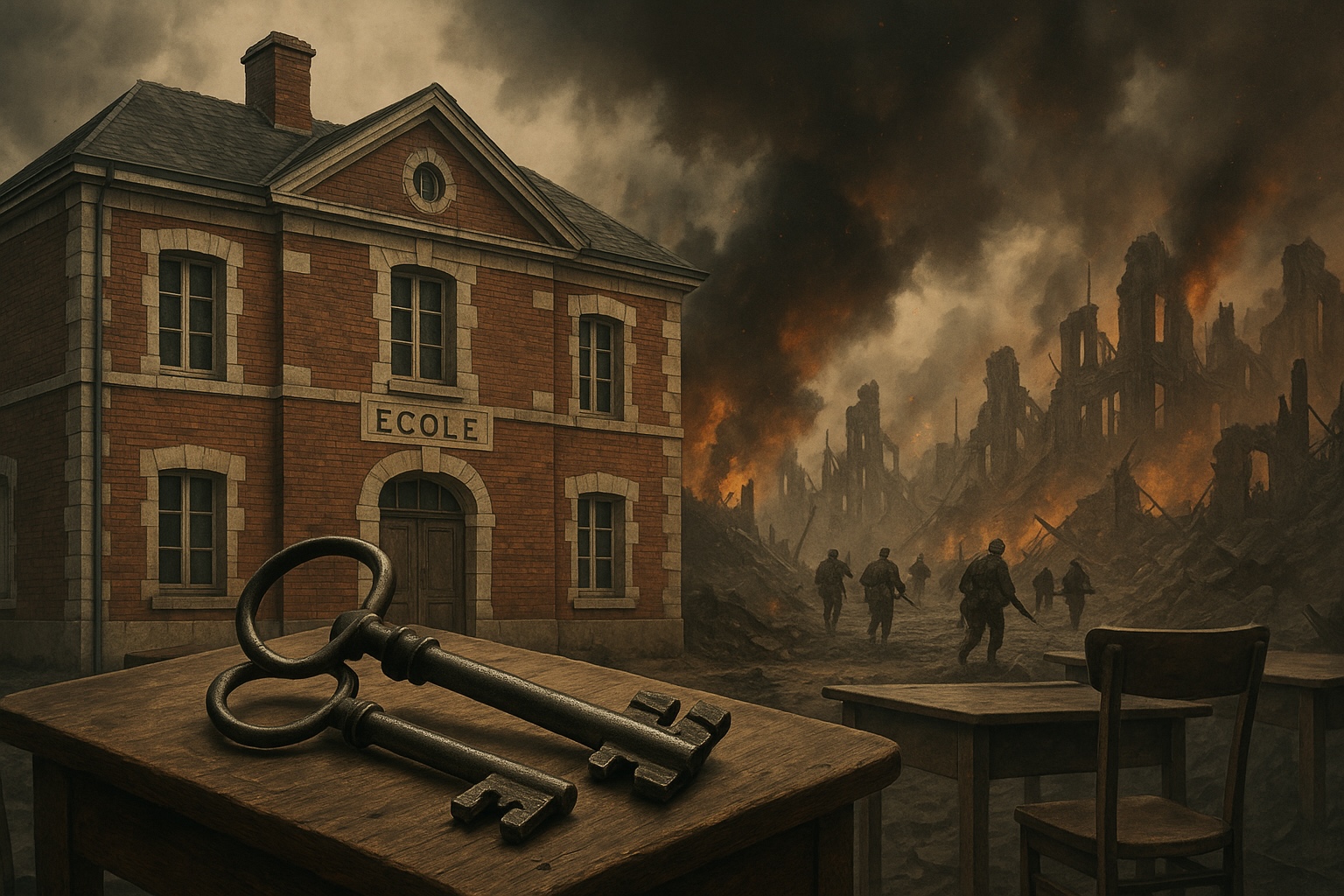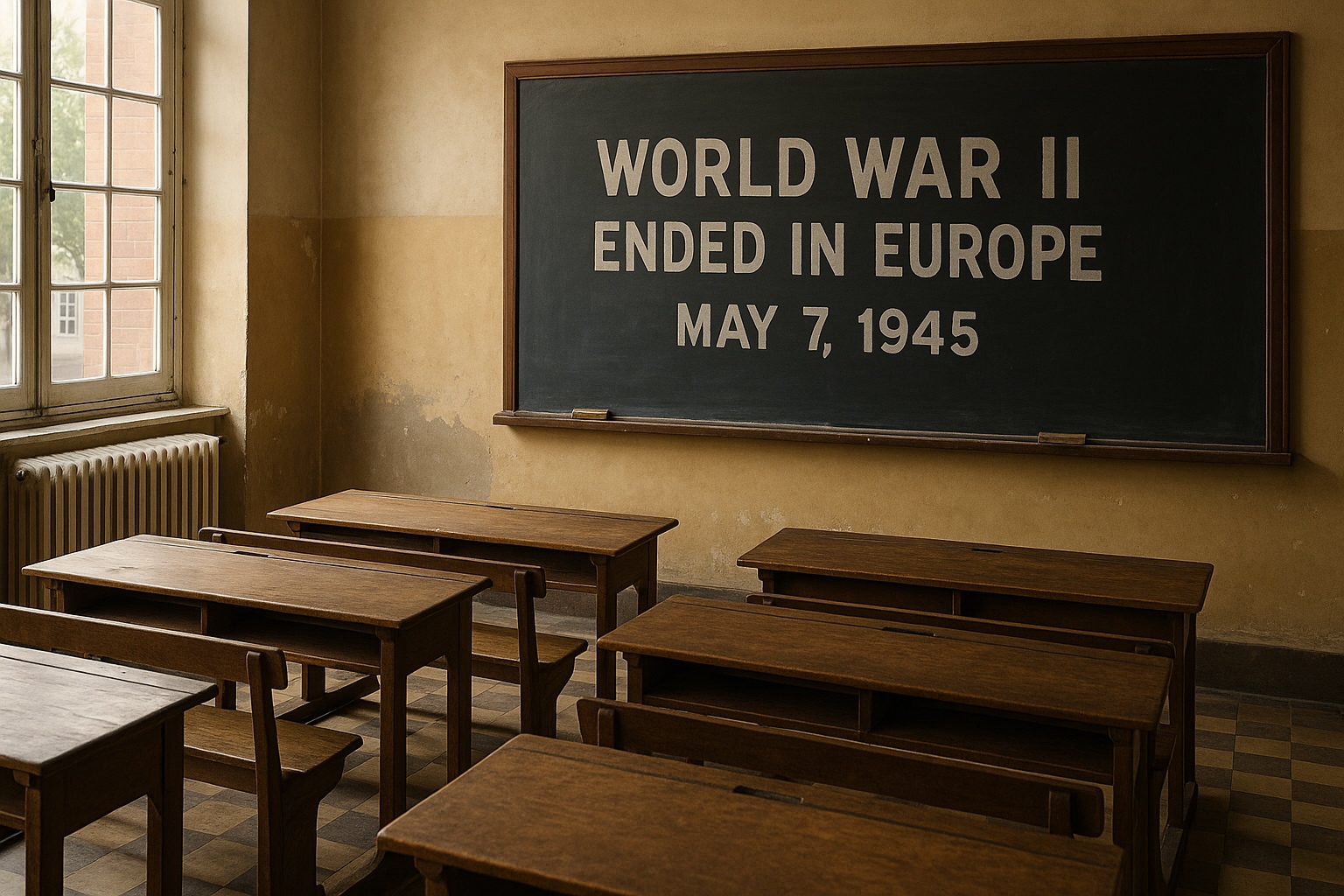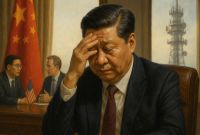80 Years After Victory: Are We Losing the 'Keys to Freedom'? Germany's Urgent Message!
A Schoolhouse in France, 80 Years On: Remembering Freedom's Price as Europe Faces New Challenges

Eighty years ago, on a quiet morning in a simple schoolhouse in Reims, France, a chapter of history that had plunged the world into darkness finally closed. It was here, in a place of learning and innocence, that the unconditional surrender of Hitler's Germany was signed on May 7, 1945, bringing an end to World War II in Europe. As the world marks this solemn 80th anniversary, the story of this unassuming location and the profound weight of the events that transpired within its walls serves as a powerful reminder: freedom is not a given; it is a treasure that must be actively guarded, both then and now.
This poignant reflection comes into sharper focus through a message shared by the German Embassy in Nepal, highlighting a short film by acclaimed German director Wim Wenders titled 'The Keys to Freedom'. The film takes us back to that secret place in Reims, a school on Rue Franklin Roosevelt, which for one pivotal night became, in the words of a witness, "the most secret place" and the "center of the world."

Imagine it: Colonel General Alfred Jodl and his adjutant, arriving not at a grand palace, but a school, to negotiate the surrender. They sought a partial surrender, hoping to continue fighting the Soviet army. But General Eisenhower, from his map room within that very school, insisted on total surrender. The weight of millions of lives, the future of a continent, hung in the balance in this ordinary building.
At 2:41 a.m. on May 7, 1945, the signatures were finally affixed, formally ending twelve years of terror, six years of devastating war, and the unspeakable horrors of the Holocaust. It was here, in this school, that the darkest period in European history met its end. The symbolism is profound: the keys to the headquarters, the keys to control, were returned to the mayor of Reims with the words, "These are the keys to the freedom of the world!"
Director Wim Wenders, reflecting on his own 80 years of life, speaks movingly of the peace that night in the Reims school brought. He notes how touching it was to see those keys, now just artifacts in a small museum, representing doors to freedom that were opened. Yet, his reflection carries a somber note – today, Europe is again facing war.
This return of conflict serves as a stark reminder to Europeans, and indeed to the world, that peace is not a permanent state. It cannot be taken for granted. It must be defended. This is where Germany's post-war journey adds another layer of meaning. After the devastation and moral catastrophe of the Nazi era, Germany embarked on a path of reckoning, reconciliation, and rebuilding, firmly embedding itself in democratic values and international cooperation. Today, Germany stands as a strong voice for peace, democracy, and human rights, actively contributing to the defence of these principles. The German Embassy's message, "#WeInvestInFreedom," is a direct reflection of this commitment – an acknowledgment that the lessons of 80 years ago are not just historical footnotes, but living responsibilities.
The keys to freedom, once physically handed over in a French schoolhouse, are now a metaphor for the active role every generation must take. As Wenders puts it, it is now up to us to take those "Keys to Freedom" into our own hands. It's a call to remember the sacrifices of the past and to be vigilant and engaged in the present, ensuring that the peace won at such a terrible cost endures for future generations. The story of a secret school in Reims reminds us that even in the most ordinary places, extraordinary moments can shape the course of history, and the defence of fundamental values is a continuous, vital endeavour.
Germany in Nepal



![From Kathmandu to the World: How Excel Students Are Winning Big [Admission Open]](https://www.nepalaaja.com/img/70194/medium/excel-college-info-eng-nep-2342.jpg)
